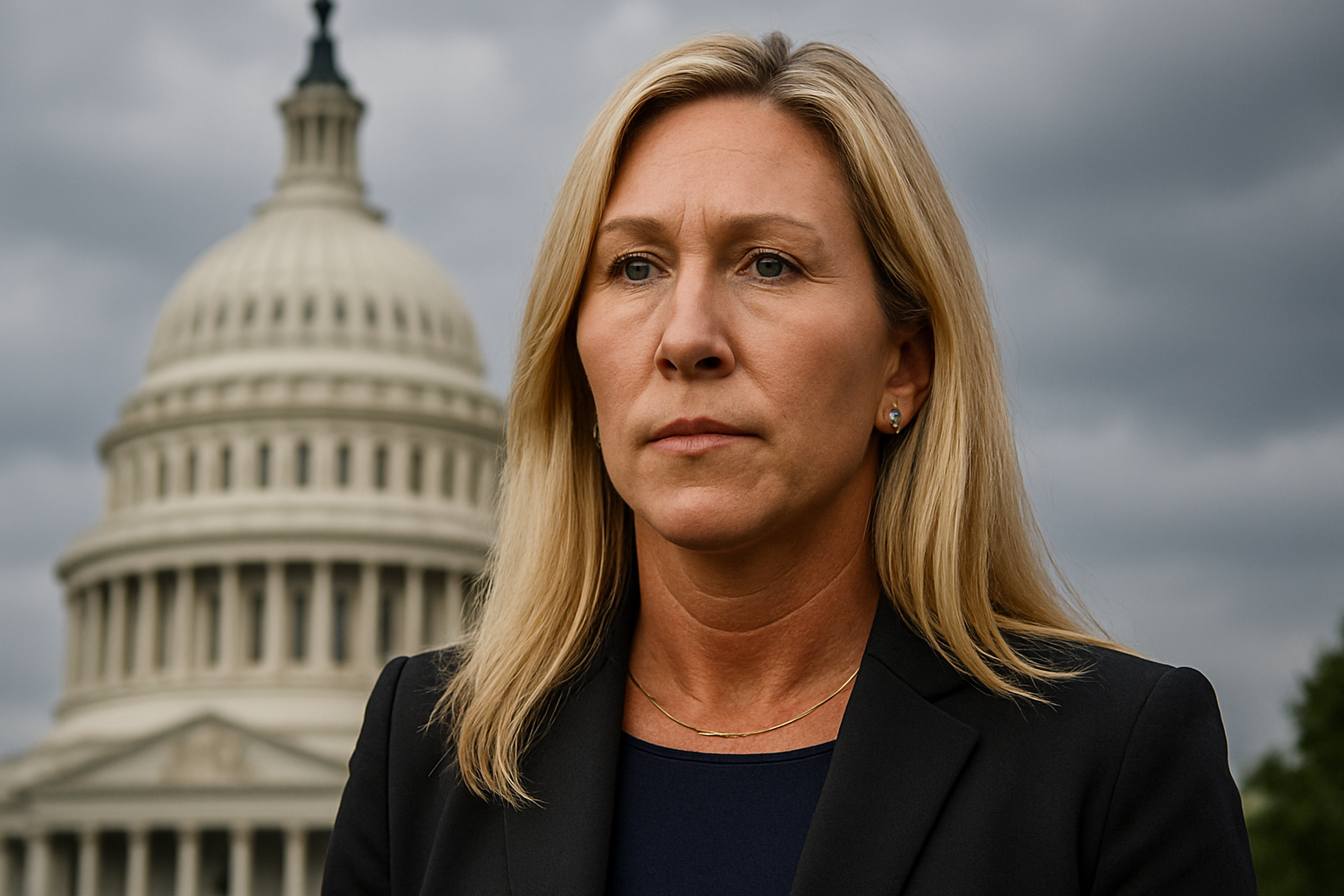The political landscape is shifting. More voices within the Republican Party are questioning the direction of U.S. foreign policy. These concerns are not new, but recent events have brought them into sharper focus. Many voters and leaders alike are asking: Is America truly putting itself first?
For years, America’s global role has been debated fiercely. Should the U.S. engage deeply in overseas conflicts, or should it concentrate on domestic issues? The divide is growing, with some Republicans pushing for a strong, interventionist stance, while others advocate for a return to America First principles.
At the heart of the debate is a simple question: What does it mean to prioritize America? For some, it means supporting allies abroad through military aid and involvement. For others, it means reducing foreign entanglements to focus on economic growth and job creation at home.
Recently, this division became more visible. Representative Marjorie Taylor Greene, a vocal America First advocate, openly criticized a prominent conservative commentator for encouraging the former president to engage in foreign wars. This rebuke highlights the growing unease about the direction of current policies.
Greene’s criticism is rooted in a concern that Republicans risk alienating their base. She warns that embracing a neoconservative agenda—characterized by intervention abroad—could drive voters away. Instead, she urges party leaders to remember the promises made to the American people: secure borders, strong domestic industries, and reduced military spending overseas.
She points to examples such as the ongoing conflict in Ukraine and recent actions in the Middle East. These issues are complex and emotionally charged. However, Greene insists the focus should remain clear: America’s interests must come first, not the demands of foreign governments or defense contractors.
One of her key arguments is about jobs. Instead of relying on defense contracts to “create” employment, Greene believes the country should invest in sectors that build up American workers and communities. She says the current path leads to endless war preparations rather than real economic growth.
Lobbyists and defense firms, she suggests, have an outsized influence on policy decisions. These groups often push for increased military spending, which benefits their bottom lines but may not align with the public’s desires. This dynamic complicates efforts to redirect resources toward domestic priorities.
Furthermore, Greene notes that foreign leaders frequently call the White House, pressing for support. She argues that the president’s primary focus should be on American citizens, rather than responding to these external pressures.
As the debate continues, it’s clear that congressional reform may be necessary. Adjusting priorities and realigning policies to reflect America First principles would require significant shifts. But for many, the risk of losing voter trust is too great to ignore.
At the same time, voices across the political spectrum acknowledge the challenges. Balancing national security, global alliances, and domestic needs is never easy. Yet, the rising call for change signals a possible turning point in how the country approaches its role on the world stage.
So, what lies ahead? Will Republicans heed the warning signs and embrace a more inward-looking approach? Or will they continue down the path of international engagement that some now see as costly and counterproductive?
Only time will tell. But one thing remains clear: the conversation about America’s place in the world is far from over. It’s a discussion that will shape policy, politics, and the nation’s future for years to come.
https://twitter.com/undefined/status/1937179790878150731

Emily Johnson is a critically acclaimed essayist and novelist known for her thought-provoking works centered on feminism, women’s rights, and modern relationships. Born and raised in Portland, Oregon, Emily grew up with a deep love of books, often spending her afternoons at her local library. She went on to study literature and gender studies at UCLA, where she became deeply involved in activism and began publishing essays in campus journals. Her debut essay collection, Voices Unbound, struck a chord with readers nationwide for its fearless exploration of gender dynamics, identity, and the challenges faced by women in contemporary society. Emily later transitioned into fiction, writing novels that balance compelling storytelling with social commentary. Her protagonists are often strong, multidimensional women navigating love, ambition, and the struggles of everyday life, making her a favorite among readers who crave authentic, relatable narratives. Critics praise her ability to merge personal intimacy with universal themes. Off the page, Emily is an advocate for women in publishing, leading workshops that encourage young female writers to embrace their voices. She lives in Seattle with her partner and two rescue cats, where she continues to write, teach, and inspire a new generation of storytellers.









